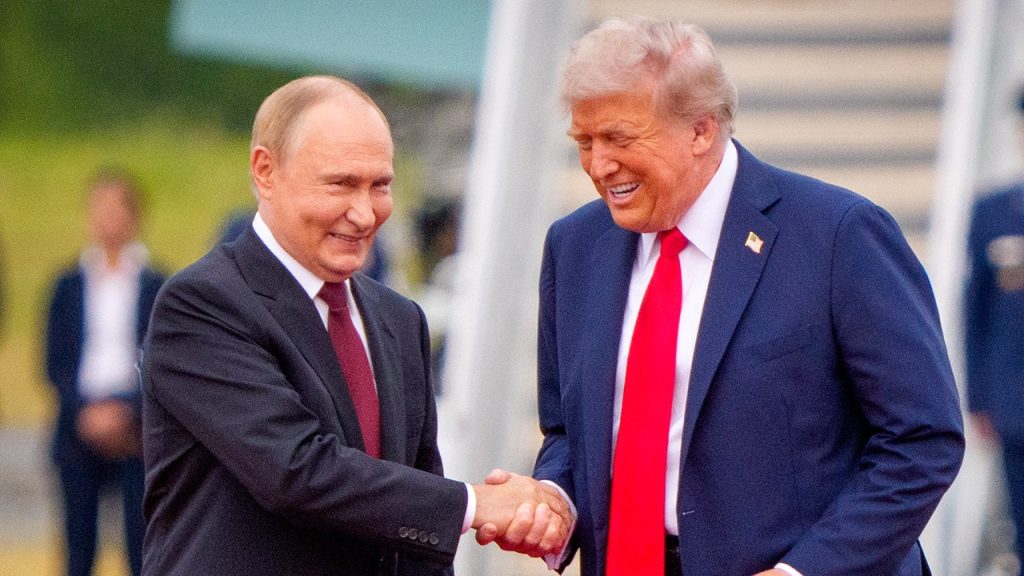Trump’s Patience with Putin Waning as Russia-Ukraine Conflict Intensifies
President Donald Trump expressed growing frustration with Russian President Vladimir Putin during a recent “Fox and Friends” interview, stating he was “sort of” running out of patience “fast” after the Kremlin announced a pause in negotiations with Ukraine. Trump reflected on his initial confidence when entering office, believing the Russia-Ukraine conflict—already three years in—would be the “easiest” international issue to resolve. However, he’s found the diplomatic dance challenging, noting, “It does take two to tango.” This statement came after host Brian Kilmeade highlighted Ukrainian President Volodymyr Zelenskyy’s repeated offers to meet with Putin. Trump observed the peculiar timing of willingness to negotiate: “It’s amazing when Putin wants to do it, Zelenskyy didn’t. When Zelenskyy wanted to do it, Putin didn’t. Now Zelenskyy wants to and Putin is the question mark.”
The situation has grown more complex in recent weeks. Putin did extend an invitation to Zelenskyy earlier this month, but with the condition that the Ukrainian president travel to Moscow—a proposal Western and Ukrainian security officials dismissed as both dangerous and insincere. Trump indicated he now believes stronger measures are necessary: “We’re going to have to come down very, very strong,” referencing sanctions on banks, oil, and tariffs. He defended his approach by highlighting the 50% tariffs he’s already imposed on India and threatened against China, both major importers of Russian oil. “That’s not an easy thing to do. That’s a big deal. And it causes a rift with India,” Trump acknowledged, though U.S. tariffs on Indian imports currently include significant exceptions for key products like pharmaceuticals and electronics.
Despite Trump’s assertions of taking action, critics point out that his administration has not imposed any new direct sanctions on Russia since his return to the White House eight months ago. This inaction has fueled growing criticism, particularly in light of recent provocations. Less than a month after what was described as a productive meeting between Trump and Putin, the Kremlin has suspended negotiations with Ukraine—talks that had already failed to establish any meaningful ceasefire. More alarmingly, nearly two dozen Russian drones violated Polish airspace earlier this week, triggering a multi-nation NATO response to the incursion. Kremlin spokesman Dmitry Peskov confirmed the negotiation pause, stating, “Communication channels exist, they are established, our negotiators have the opportunity to communicate through these channels, but for now, perhaps, we can talk about a pause.”
The drone incursion into Poland, a NATO member, has significantly elevated tensions in the region. While Trump suggested the incident might have been accidental, both Poland and Ukraine have forcefully rejected this characterization. Polish Prime Minister Donald Tusk directly contradicted Trump’s assessment on social media: “We would also wish that the drone attack on Poland was a mistake. But it wasn’t. And we know it.” The timing of the incident is particularly concerning as Russia simultaneously initiated war games in neighboring Belarus, which shares a border with Poland. Some of the drones that entered Polish airspace reportedly originated from Belarus, where Russian troops began gathering earlier this week.
These developments represent a worrying escalation in a conflict that has already defied numerous diplomatic efforts. The pattern of stalled negotiations, military posturing, and territorial violations suggests Putin may be testing NATO’s resolve and unity rather than genuinely seeking peace. For Trump, who campaigned on his ability to resolve international conflicts through personal diplomacy, the situation presents a significant challenge to his foreign policy approach. His initial confidence in finding an “easy” solution has given way to the complex realities of dealing with Putin’s strategic ambitions and willingness to violate international norms.
The coming weeks may prove critical in determining whether Trump will follow through on his suggestion of “hitting very hard with sanctions” or pursue alternative approaches to addressing Russian aggression. NATO allies are closely watching the U.S. response, particularly after the alarming drone incursion into Polish airspace. As Russia continues its military exercises in Belarus and maintains its “pause” in negotiations, the pressure mounts on Trump to demonstrate effective leadership in confronting Putin’s increasingly provocative actions. The president’s diminishing patience suggests a potential shift in U.S. policy, but whether this translates into concrete measures remains to be seen as this dangerous standoff continues to evolve.


